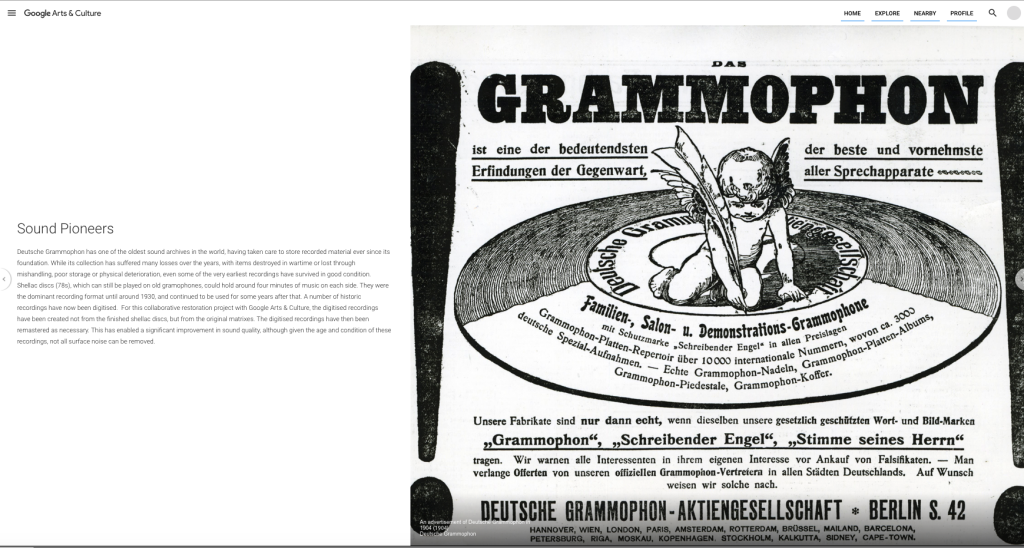
Deutsche Grammophon is 120 years old this year. It was set up by US-born Emile Berliner – inventor of the flat-disc phonograph record – as the German arm of his own Berliner Gramophone Company. It has a storied history and has become a byword for a certain quality in classical music.
To mark this anniversary, it is digging deep into its plump and varied archives and has no shortage of treasures there as it has witnessed literally every twist and turn in the evolution of recorded music.
There are a series of concerts planned for the rest of the year, but it is what is happening digitally that is of most interest to sandbox readers. The label, now part of Universal Music Group, has partnered with Google Arts & Culture for a rolling archival project that will see obscure gems in its vaults digitised for the first time. Under the umbrella of The Shellac Project (no, nothing to do with Steve Albini’s hardcore band), it is taking rare Galvano metal masters recorded in the early 1900s and making them available online.
Around 400 shellac records will be digitally updated and they include historically important recordings such as Russian author Leo Tolstoy reading from one of his novels as well as early recordings by jazz pioneer Louis Armstrong from 1934. On the classical side there are also rare recordings from Russian bass Feodor Chaliapin and Austrian violinist/composer Fritz Kreisler as well as a 1927 recording of Pietro Mascagni conducting members of the Berlin Staatskapelle.
“As inventor of the gramophone and founder of the world’s oldest record labels, Emil Berliner brought music into everyday life,” said Philipp Justus, VP of Central Europe for Google in a statement. “We are excited about Deutsche Grammophon’s collaboration with Google Arts & Culture to digitise hundreds of the world’s oldest records, and to make this important chapter of music history more accessible to people everywhere.”
Classical is a genre that we cover in sandbox only occasionally, but this partnership is proof that classical labels can absolutely twist digital to their advantage and will serve as an important bridge into classical music online for consumers.